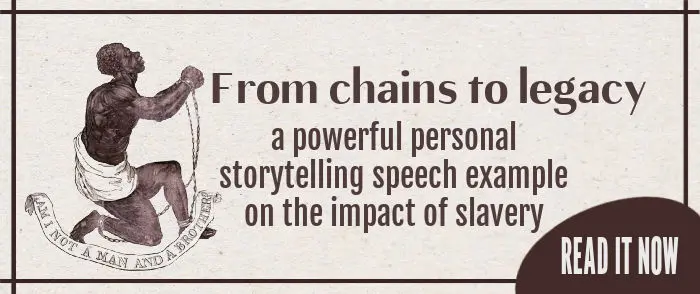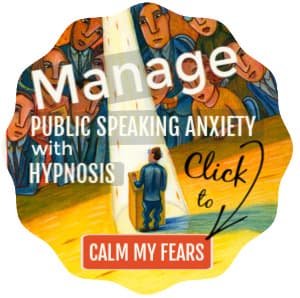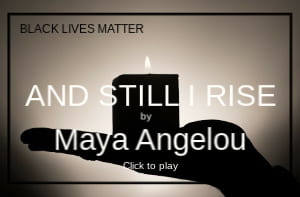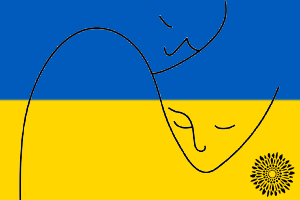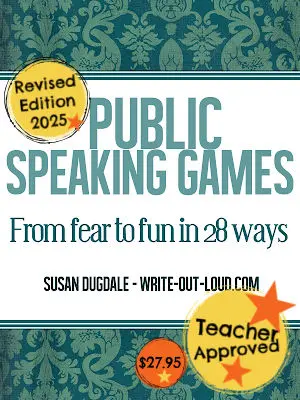- HOME ›
- Speech topics ›
- 60 body language speech topics
Toastmasters body language speech topics
60 vocal variety and body language speech topic suggestions
By: Susan Dugdale
There are two Toastmasters International Pathway speech projects whose main goal is to help a speaker become more aware of, and to effectively use, the power of body language in their presentations.
These are:
- Level One - Mastering Fundamentals - Project 3 - Introduction to Vocal Variety and Body Language
- Level Two - Learning Your Style - Project 5 - Effective Body Language
Obviously, some speech topics have more potential than others when it comes to deciding what you’ll talk about to fulfil the project’s purpose. What are they? And how do you choose the right one?
What's on this page
- What makes a good body language topic
- Why choosing a personal story is a great start
- Once upon a time: 20 topics from our youth
- 20 grown up body language speech topic suggestions
- Lessons from life: 20 slices of truth topic ideas
- About Toastmasters vocal variety and body language speech projects
- Further vocal variety and body language resources - including an example speech
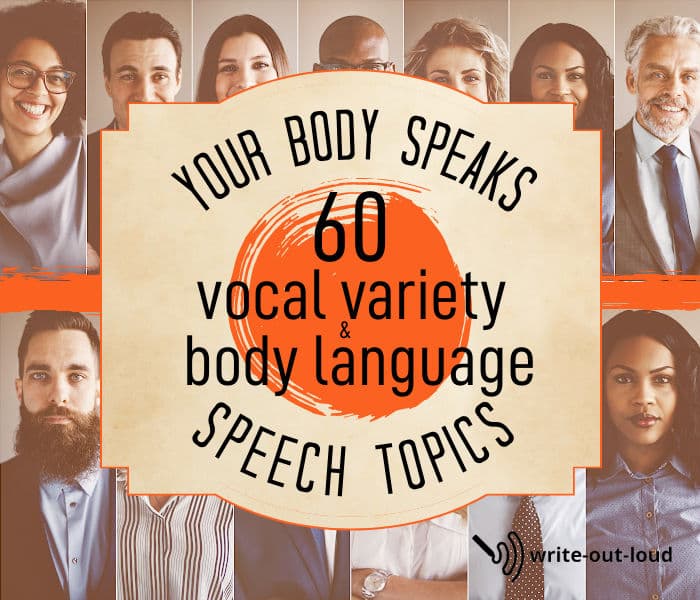
What makes a good body language topic?
Body language is defined by the Oxford Dictionary as the conscious and unconscious movements and postures by which attitudes and feelings are communicated.
Therefore, the very best speech topic you could choose is one that you are genuinely and sincerely interested in, even passionately so. The more feeling you have, the easier it will be to work on drawing out, refining, and amplifying your body language to enhance the delivery of your speech.
Choose a personal story for the project
Personal stories are a great starting point. We can all recall events that are indelibly etched in our minds. We will always remember the sight, the sounds, maybe a smell, the feelings wrapping them around, who was there, the words that were spoken... The before and, the after.
Because what we’re sharing is meaningful to us, the gestures, the body language, we use as we retell the story will be natural: without conscious orchestration. This automatically makes the delivery authentic because our words and our actions are in harmony with each other.
The task is to take what we are already doing and refine it.
Once upon a time time...
The majority of these story ideas belong to our youth.
- How I learned to ride a bike
- My first day at school
- Family celebrations: birthdays, Christmas or its equivalent...
- The arrival of a baby sister or brother and what it meant
- Sibling rivalry: the good, the bad and the ugly
- My favorite childhood foods
- Things I learned I could get away with as a child
- The object (toy, book, piece of clothing or sports gear...) I most valued and why
- My idol or hero as a child or young person
- How I first learned about death
- My first friendship
- My favorite childhood fantasy
- The imaginary monsters that waited in the shadows to get me
- Who, and what, I wanted to become when I grew up
- My favorite hobby or sport as a young person
- The place I felt safest as a child
- My favorite places to visit as a young person
- The rooms, streets... I remember most clearly
- When I was a child I always wondered about..., or was puzzled by...?
- My earliest memories
Story suggestions from our grown up adult lives
Firsts are often frequently and vividly remembered experiences that could be become the basis of a speech.
- My first job interview
- My first job
- My first date
- The first car I owned
- My first driving lesson
- My first Toastmaster’s speech – the story of getting ready to give, and giving, my Ice Breaker
- My first international travel
- The first time I realized I was completely out of my depth
- The first time I felt really proud of myself
- The first time I knew I was liked/loved for being exactly who I was
- The first time I saw my new-born child
- My first real home
- The first time I realized I was different in some way from the people around me
- The first time I went to hospital
- The first time I heard...{name of band playing, name of person speaking, singing, laughing, crying, shouting, or name of instrument: guitar, piano, drums, saxophone... etc.} I knew that...
- The first time I was completely lost for words
- The first time I questioned the rights and wrongs of a situation
- The first time I felt betrayed by someone I had looked up to
- The first time I was publicly acknowledged for doing something well
- The first time I realized how fortunate or lucky I was to be me
Lessons from life
Slices of personal truth served with a side of humor and grace on a bed of well seasoned story telling skills! ☺
Use your own experiences to show as well as tell what you have learned.
- How I recovered from knowing I was not the most physically beautiful person in the room
- What I’ve learned through years of people watching
- How the body language for friendliness is universal – eg. a smile goes a long way
- The truth behind power posing: how to, why to and when to
- How I learned to recognize fear in myself, and challenge it
- Body language gestures that do not translate well across cultures and cause misunderstandings
- How to tell when your child is lying and what to do about it
- How becoming aware of our habitual unconscious gestures and what they convey is empowering
- The most powerful words I know: Yes, no, mother, father, love, money...
- My most embarrassing experience
- How to tell who is the most well-regarded or influential person in a group
- The top tell-tale signs of anger that would be helpful for people to recognize before it was too late
- What does a feeling look like? Learning to read and communicate with non-verbal people
- Does fake it until you make it really work?
- How I learned I was not good at pretending to be someone I’m not
- How I learned I was going to recover from having my heart broken despite the pain
- How our habitual body language, (how we walk, stand, sit, use our faces...), impacts on our mental and physical health
- How seeing yourself giving a presentation on video is challenging but really helpful
- That the best things in life truly are free
- The one that
got away: the job, relationship, fish...
Toastmasters vocal variety and body language projects
*In 2021 Toastmasters altered several Pathway projects. An introduction to vocal variety and body language became the third project of four in Level One: Mastering Fundamentals.
In Level Two: Learning Your Style, the project 'Effective Body Language' deepens the foundation work done in Level One, while vocal variety is revisited in Level Three: Increasing Knowledge.
Prior to the introduction of Pathways working with body language was the fifth project of ten required for the Competent Communicator award. It was called: Your Body Speaks.
Further body language and vocal variety resources
Onsite resources
'From chains to legacy' is a powerful personal storytelling speech example on the impact of slavery. It was contributed for publication by Emily, a Toastmaster from Canada, who prepared it for her third Level One project: an introduction to vocal variety and body language.
Other articles are:
- 125 examples of narrative speech topics - more great prompts to help you find the perfect personal story to share
- The vocal aspects of speech delivery - 9 features of effective speech delivery (which includes vocal variety)
- Why is eye contact important? Information about eye contact with activities for teaching and practicing it
- Characterization techniques for effective storytelling in speeches: exercises to develop compelling body language and voice
- Teach yourself body language: becoming aware of and working with our habitual unconscious body language and gestures to increase the effectiveness of our speech delivery
Offsite Toastmaster resources
- An Introduction to Vocal Variety and Body Language: Level One: Mastering Fundamentals, Toastmasters International, pdf
- Effective Body Language: Level Two: Learning Your Style, Toastmasters International, pdf
Other onsite resources for Toastmasters
Four themed sets of 20 table topic questions: Christmas, music, life-lessons and thought-provoking topic ideas. There's a printable for each set, plus an overview of table topics: its benefit, how a Toastmasters table topics session is run, what makes a good topic, the value of feedback, and more.
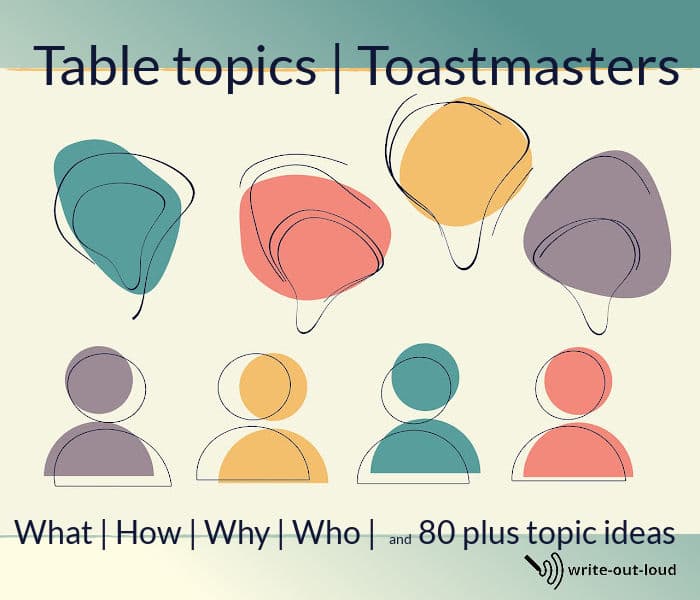
Master your icebreaker for Toastmasters: a thorough step by guide, with examples, going from selecting a topic, writing and rehearsing, through to delivery. With an example icebreaker speech.
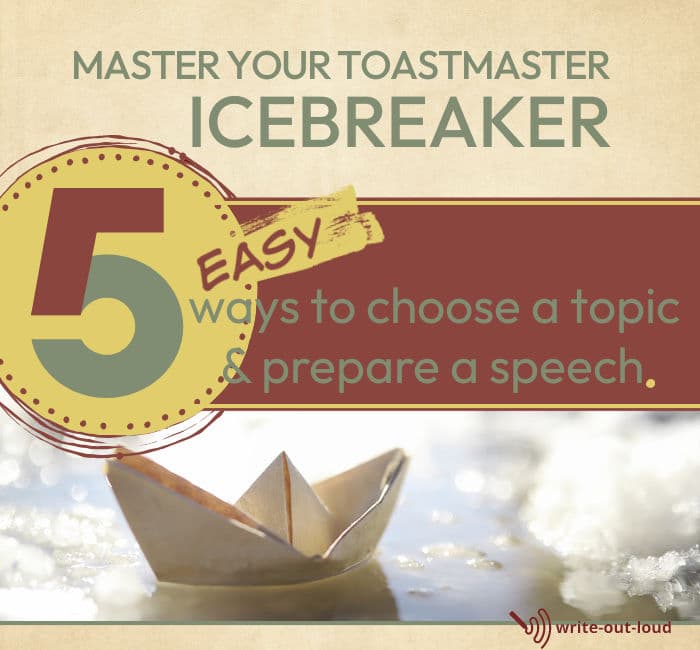

About the Author: Susan Dugdale, founder of write-out-loud.com, is a qualified teacher of English and drama with over 40 years of experience. Drawing on her professional expertise and her personal journey from shyness to confidence, Susan creates practical, real-world resources to help people find their voice and speak with power.
